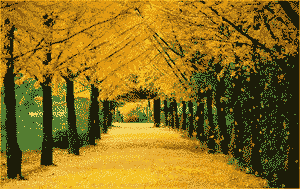Dr. Rati Saxena and Dr. T.K.Ramachandran
simultaneously launched Thanalonline.com at Thiruvananthapuram
and Calicut respectively on the 21St of March
2006. It was the realization of a long-cherished
dream. The site had good response from the world
over. The guest book, however, was misused by
many an advertiser for advertising his porn and
drugs. (I must warn them that I will be forced
to resort legal options, if any, against those
advertisers.). I did not add a submission option
because I was advised by the experienced in the
field that a large quantity of shabby things come
in the name of poetry and story. In fact, in the
absence of a submission option, I must claim that
I escaped this flow of shabbiness into my ezine.
But I do not; I have never thought in my life
that there can be a bad story or a bad poem. It
is the standard one fixes that decides the good
or bad of a poetry or story; the standard could
never be taken as universal or eternal; it is
purely relative. What appeals to my mind is good
for me what ever be the aesthetic rules stipulated
by the “great ones”.
 |
|
| |
(Two)
|
The month of May. Mayflower is blooming and the
yellow flowers heralding the spring and the equinox
are still fresh on the trees. A combination of colors
of different varieties and fragrance of flowers
make world beautiful. But elsewhere some smell blood
and taste it trickling down their cheeks. It is
a cruel sight. Iran is almost on the brink of war
as the age-old civilization does not know submissiveness
before any force or foe. One finds that they have
weapons of war of nuclear generation; but it is
a suspicion built on grounds of necessity of war;
Iraq was suspected and propagated like this and
when it was clear to the world that it was mere
propaganda, none corrected any error. The land of
culture and civilization is ruined beyond reparation.
A cry in the wilderness would it be to call upon
anyone to stop this hue and cry in favor of war.
War is wholesale terrorism while terrorism is individual
warfare. Sreelanka has again been subjected to genocide.
Who is and what is to blame is not the question;
who will stop this cruelty is the issue. A recitation
of poems would not put a stop to this. Still we
the poets of the world appeal to conscience and
call upon everyone to be sober and sagacious; war
is not an elixir and if it were, the US would not
have to fight any more war; it has fought many.
A struggle ended in India almost
unnoticed by most in the world. It was the Hunger
strike by the famous Social and eco activist Medha
Patkar against the raising of the level of the Sardar
Sarovar Dam. It would endanger the lives of those
who stay on the banks of Narmada. Narmada Bachao
Andolan (Save Narmada Movement) was reaching another
stage. The great ones at the helms of affairs in
New Delhi and Bhopal and Gandhinagar are not all
concerned about Narmada or the people settled for
decades and even centuries on the bank of the river.
We Indians have the pseudo faculty of worshipping
a thing, while at the same time, trying to tarnish
and, if possible and necessary, to blaspheme on
the issue. It is exactly what happens in the case
of Narmada issue. The so-called worshippers of deities
and rivers who rule the constituent states of the
Indian Republic and situated on the bank of the
holy rivers are not even the least bothered about
the safety of the river and the people. They are
particular about “Development” at the
cost of the people. They want to draw graphs of
development instead of ascertaining true life to
their people. They are following the diktats of
the international monetary agencies of globalization.
Like the struggle at Plachimada against the draining
of water resources of the region by the Cola Companies,
the Narmada struggle of Medha Patkar also went unheeded;
the people were more interested in elections in
various states of the Republic than in the Narmada
Bachao Andolan; the court has said that it was necessary
to raise the dam level, but, it conceded at last
that the people should be rehabilitated. In Kerala
also, in the wake of the Plachimada struggle, the
court had taken a stand favoring the expropriators
of water resources from the area. Courts, as Marx
had said in no uncertain terms in “ Conditions
of Working Class in England”, have a pleasure
in defending the interests of the ‘haves’.
The Narmada struggle went on approximately for one
month. The Central Govt. paid no attention; the
govt. of Gujarat and Madhya Pradesh deliberately
tried to malign the struggle and the Chief Minister
of Gujarat who has earned much notoriety for his
patronization of the genocide in Gujarat declared
a hunger strike himself if the level of the Dam
is not raised. The man did it to oppose his people.
Unlike Gandhiji, a man emanating like an ethereal
presence providing fear to the people is using Gandhian
method of Vrinda Karat calls on Medha Patkar struggle
against his won people, while Medha was using it
for the sake of life now and life in the future.
Political pragmatism wouldn’t pay any attention
to her. But she was Gandhiji incarnate in the days
when she was fighting. It was a one-person fight.
But millions supported her. The people are in danger
of losing their hutments in unusual floods arising
out of the unnatural construction in the river and
also of losing their livelihood. Our nature is at
stake; our natural resources are at stake; our water
resources are at state; the whole flora and fauna
are at stake. A time has come for the people of
India to decide whether “ To Be Or Not To Be”.
Unless they do it, their conscience would send slings
and arrows towards them in the near future. Medha
Patkar symbolizes the human power that must get
invigorating patronage and encouragement; otherwise,
the future of our land and water and mountains will
be in danger
 |
|
| |
(Three)
|
I feel my ezine had satisfactory
acceptance. One or two to whom I sent my mail
messages, of course in reply to theirs, expressed
displeasure over some thing, and hence my mails;
although it would be unwise to generalize, I must
assume that it is my attitude to the US imperialism;
I am hundred percent opposed to any war and for
that matter any kind of terror; I do not contribute
to the existence of God as God would not require
it. I fear not ghosts. Those who enslave themselves
to the ideology of imperialism are sick and they
could not cure of this unless they learn a little
history. Unless they do it they would call anti-war,
anti-imperialist writers and activists snobs and
their work snobbery. It is none of their fault;
it is their sickness that prompts them to call
names. They are to be subjected to some therapy
rather than accused. I could only be sorry about
the state of their minds.
Certain omissions and consequent
errors appeared in the first issues. All poems
of Joop Bersee could not be added. Jan Schindler
could not be mentioned in the site fully; the
illustrious artist from Holland has a “killing”
talent latent in him. I would like to touch and
hug him for some time for the beautiful etchings
he sent to the ezine. But I fear there is a gap
of communication between us. And above all, the
Editor’s choice in the first issue was printed
in a confused way; the poem was not fully printed;
it was haste and confusion, all over. I am sorry
Ratiji, for misprinting the beautiful poem; I
reprint it in full this time.
I am a novice in the field of cyber communication.
What I could do is only type things. I would like
to be Umberto Eco, but I am not and I cannot,
I know. And who is not? One by one, I am learning
things; like Michael Yuan, who has not yet seen
the ezine with his poems, I am a very poor student
of cybernetics, a really bad student. But Mr.
Jaidev has offered to teach me a few things.
The Poet’s choice in English this time consists
of a poem on History, ‘ Reading History’,
by Usha Kishore. Usha has a way of treating history
in poetry with ease and without any twist. She
eschews the evils of romanticism in all possible
ways but retains its merit in the subtlest way.
I add a few other poems of Usha Kishore in this
issue, which might prove my way of thinking. Like
a concoction, they taste bitter, but they begin
to soothe gradually.
This issue is rich with a lot of poems from different
parts of the world, criticism, obituary (of course,
obituary never enriches us) and many other items.
There is a write-up on Joop’s poems along
with a number of poems from the Dutch born South
African resident, Editor of www.sothernrainpoetry.com.
And the editor’s choice this time in Malayalam
section has two poems, one from N.N. Kakkad, the
celebrated Malayalam poet who died a few years
ago and other from Sugathakumari.
Other contributors in this issue are Dr. Deena
Padayachee from S. Africa, Suma.V.S. of the editorial
board of celebrated Kritya.in, Rati Saxena, Roger
Humes, Mr. Santharam of Kerala, Dawn Sapleton,
Michael.H.Brill, the Turkish poet Fide Erken,
Patricia kelly from New York, Koothali Gangadharan
etc. There are others too who write in this issue,
besides the editor. A prestigious item in this
issue is an article entitled “Identity as
Resistance –Demystifying Essence, from Marx
to Fanon” by Dr.P.K.Pokker of the University
of Calicut. A note on Richard Dawkins and another
by Ali Sulfikar on writing of local history is
also added in this issue. An element of epistemology
is necessary along with a lot of aesthetics. There
are other items like an interview with Vaikkom
Muhammed Basheer; an obituary entitled “
bloodstained Tree” on Eechara Varier, and
other materials. I hope the readers would have
a look and read the items that interest them.
The main void in this issue as in the former one
is the absence of any story. Is it because our
epoch has no tale to tell? However I am sure it
is not easy to find stories. I got a few stories,
which, I thought, need not be published. The rejection
is fully on subjective grounds, and it does in
no way affect the quality of the works sent to
me. We know there are many tales yet to be told;
the correct writer might appear the correct moment
to take the tales with their all freshness.
This time the pictures are drawn
and suggested by Sri. Karunakaran Perambra.(karuna).
It would be quite out of place to to thank him
formally.
I, with humility, send this second
issue of thanalonline to you my readers. It is
up to you to use it and express your valuable
opinions. The site has many options for readers’
opinions. Kindly make use of them.
C.P.Aboobacker,
Editor
Matter and opinions could be sent
to the following ids:
cpaboobacker@gmail.com
editor@thanalonline.com
|
|